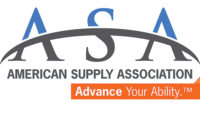The American Supply Association is part of a coalition that supports the Healthy Drinking Water Affordability Act (The Healthy H20 Act) recently introduced by Wisconsin Senator Tammy Baldwin.
The Healthy H20 Act would provide grants for water quality testing, purchase and installation of point-of-use or point-of-entry water filtration systems that remove or significantly reduce health-based contaminants from drinking water.
Grants would be provided by the U.S. Department of Agriculture either directly to individuals or to nonprofits or local governments to help people go through the process of testing and then finding and installing a water treatment product to address their situation.
The legislation would deploy effective solutions to challenging water problems: water filtration products funded through the program must perform reliably as certified by a certification body accredited by the American National Standards Institute and address the risks faced by the applicant.
The Healthy H2O Act would require that USDA publish public annual reports on the technologies available and purchased by eligible grant recipients, trends on steps taken to ensure safe drinking water in communities and households, and recommendations on increasing utilization of treatment when appropriate.
Also, the legislation would drive public health benefits for millions of rural and underserved communities, including communities with persistent water challenges that lack near-term solutions to contamination.
“The American Supply Association in its continuing mission of providing clean water to all Americans is pleased to support the Healthy H2O Act,” ASA Government Affairs Director Steve Rossi said. “This legislation would address the critical needs of underserved, rural communities to obtain grants for testing and water filtration solutions. This funding would help bring parity for those areas that may have been overlooked by previous legislative efforts and help continue to provide clean, fresh drinking water for years to come.”
Finding a solution
The premise of the Healthy H20 Act revolves around the problem of many people not knowing if their drinking water is safe and not having access to treatment solutions that could protect their health. The aim of the legislation is to protect public health and use voluntary solutions to address a key gap in drinking water safety by ensure people have the tools to test their water, understand any risks they face and access a solution that best fits their situation.
Untreated water contaminants threaten water quality for millions of people. Across the United States, communities face threats to their drinking water from a number of contaminants, including lead, arsenic, nitrates, volatile organic compounds (VOCs), PFOA, PFOS, hexavalent chromium-6 and others. Public water systems monitor for these threats and treat water before it is distributed to points of use. However, data shows nearly 43 million households rely exclusively on groundwater delivered through private wells for their drinking water. This water is not subject to the same regular oversight for contamination, which can delay identification of and response to health threats.
While there are solutions, there is a need to increase access and use to protect public health. There already are many technologies for testing and water treatment at point of use. The challenge is that many people do not realize they may be at risk, and it can be very confusing and expensive to sort through local risks and get set up with an effective treatment solution.
There is a need for a better solution for water issues that are not addressed by existing USDA and EPA programs that focus assistance on public water systems and are often tailored to a specific set of regulated contaminants. Low-cost technology solutions installed at the faucet or within a building can provide short-term and ongoing protections from known and emerging water contaminants. These solutions are especially critical because they provide a rapidly deployable solution to newly discovered water contamination. Children are especially vulnerable to water contaminants such as lead, PFAS, and these treatment systems can provide relief for families upon installation, Sen. Baldwin’s comments on the proposed legislation concluded.
ASA is part of a coalition in support of The Healthy H2O Act that includes IAPMO, NSF, Water Quality Association, National Groundwater Association and The Water Council.






